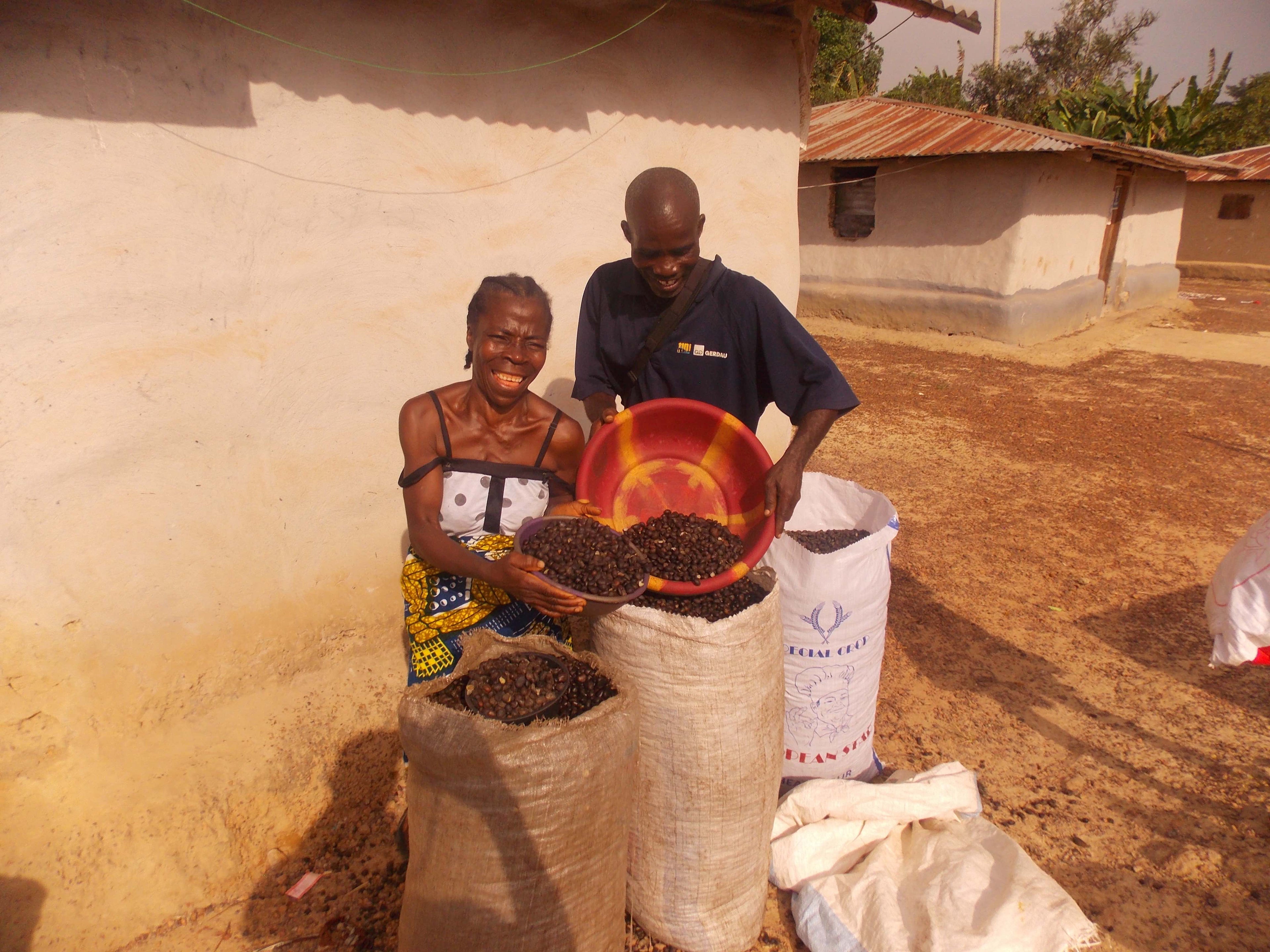Our Brand Story


At Kernel Fresh, we believe that true beauty is rooted in nature and community. Founded by J-Palm Liberia, our mission is to harness Liberia's rich natural resources to create premium, all-natural skin and hair care products that not only enhance your natural beauty but also uplift local communities.
In Liberia, the oil palm tree grows abundantly in the wild, offering a wealth of natural resources. Traditionally, smallholder farmers harvested palm oil, often discarding the valuable palm kernels. Recognizing this untapped potential, J-Palm Liberia began purchasing these kernels, providing farmers with additional income and reducing waste. We cold-press the kernels to extract pure palm kernel oil, the cornerstone of our Kernel Fresh product line.
Our Products
Kernel Fresh offers a diverse range of natural skin and hair care products, including:
- Moisturizing Oils: Hydrate and nourish your skin with our premium palm kernel oils, available in various scents.
- Natural Soaps: Handcrafted with nourishing oils and butters for soft, clean skin.
- Body Butters: Luxurious hydration that leaves your skin feeling silky soft.
- Hair Shampoos & Conditioners: Strengthen and shine your hair with nourishing ingredients.
Each product is meticulously crafted to meet international standards, ensuring quality and effectiveness.
Our Impact
By choosing Kernel Fresh, you're not just investing in your beauty routine; you're supporting a sustainable ecosystem. We collaborate with over 10,000 smallholder farmers across 91 villages in Bong County, Liberia, helping them more than double their incomes and improve their livelihoods. This partnership fosters economic growth and empowers communities, creating a ripple effect of positive change. We are dedicated to sustainability and empowering local communities by creating high-quality natural products that people love and trust.
Join Us
Join the #KernelFreshFamily! Experience the natural beauty of Liberia with Kernel Fresh. Together, we can make a difference—one product at a time, one farmer at a time, one village at a time.






















